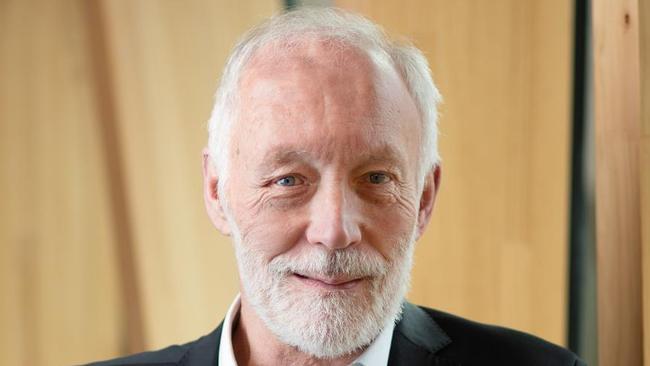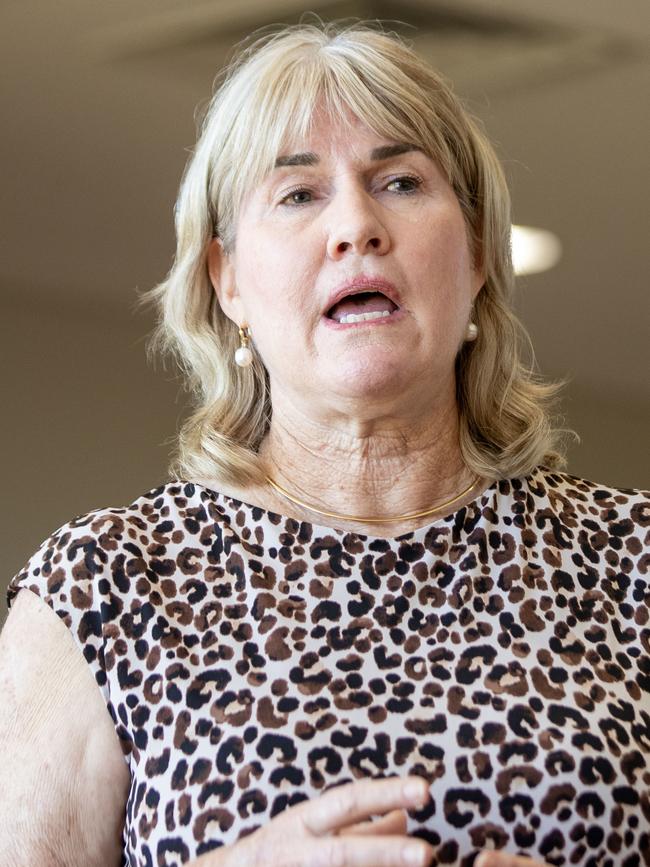‘Mental health is not ever terminal’, says Patrick McGorry
Eminent psychiatrists have warned against allowing patients suffering from a mental illness to access to euthanasia, with one describing it as a ‘very dangerous’ discussion.

Former Australian of the Year Patrick McGorry is among a group of eminent psychiatrists who have warned against allowing mental health patients access to euthanasia solely on the basis of a psychiatric condition, describing it as a “very dangerous” discussion because recovery can never be ruled out.
Professor McGorry, who founded mental health service Orygen, raised concern that a psychiatric illness should ever be “regarded as terminal” after the Northern Territory government released a survey canvassing public opinion for allowing people to access euthanasia because they were suffering a mental illness.
NT Chief Minister Eva Lawler did not rule out that her government was considering allowing access to assisted suicide on the basis of mental illness, accusing doctors who had raised concerns that it had been included in the consultation of running a “scare campaign”.
“We have voluntary assisted dying across Australia, we’ve seen it worldwide, we will work very carefully in the NT,” she said.
Professor McGorry, whose advocacy led to the creation of youth service Headspace, said it was concerning that mental health patients in The Netherlands and Belgium were being granted access to assisted suicide, urging state and territory governments not to follow the same path.
“Just because someone’s got a severe and long-term illness doesn’t mean you can be regarded as terminal in a mental health situation,” he told The Australian.
“Because there’s always hope and there are late recoveries in all these illnesses.”
Professor McGorry said dementia and Alzheimer’s disease were different to mental illnesses, as fatal diseases that take a toll over years by “reducing quality of life and producing tremendous suffering with no hope of recovery or cure”.
“That’s a different scenario from what we see with other forms of mental illness like schizophrenia, depression, bipolar disorder or anorexia nervosa; some of those illnesses are very severe and persistent, but there’s always hope of recovering,” he said.
“So if you assume that you know what’s going to happen, if you assume you know the prognosis, you might be right statistically, but in the individual case you can never be sure. So it’s very dangerous to allow any discussion of euthanasia in that context.”
Professor McGorry said persistent underfunding of mental healthcare had led many to believe there was no hope for mental health patients, with only 50 per cent of Australians with a mental illness having access to care.
“The underinvestment in mental healthcare creates a much more pessimistic perception of the prognosis and mental illness, which feeds into this sort of thinking that these patients are really suffering so much, and there’s nothing we can do so they might as well die,” he said. “That’s very, very dangerous, I think.”

Psychiatrist and co-director of health and policy at Sydney University’s Brain and Mind Centre Ian Hickie said it was “understandable how people become hopeless in our system” but allowing VAD for mental health conditions had been extremely problematic overseas. He said the focus should instead be on improving treatment options.
“The reality is that most people with mental health problems, who are extremely distressed by this situation, have never received adequate care,” he said. “So they live with the consequences of chronic illness and are very distressed by that, and that’s quite different to cancer care or dementia care or other areas where these issues are constantly discussed.”
National Association of Practising Psychiatrists president Philip Morris said he opposed opening VAD to mental health patients, saying a patient can experience “significant fluctuations in the level of severity” and later make a recovery. “The concern that we would have is that many patients with psychiatric disorders can be profoundly depressed or feel that their life is not worth living, but the condition can recover and at a later date they may completely have a different attitude to this situation,” he said.
Support service SANE chief executive Rachel Green said she was concerned by the wording of the survey, which poses an “incredibly simplistic way of exploring a very complex topic”.
“We know that people with complex mental health issues can and do live well when they are supported, and there are many members of the SANE community that are living proof of this.”
The Royal Australian and New Zealand College of Psychiatrists said mental illness should not be a foundation to access VAD.
An advisory panel will report to the NT government by July.






To join the conversation, please log in. Don't have an account? Register
Join the conversation, you are commenting as Logout